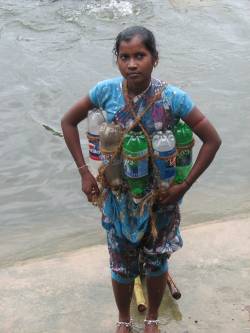 The pictures emerging from Odisha (formerly known as Orissa) an Indian state on the east coast by the Bay of Bengal after cyclone Phailin are astonishing, and make the currently very low number of reported fatalities all the more so.
The pictures emerging from Odisha (formerly known as Orissa) an Indian state on the east coast by the Bay of Bengal after cyclone Phailin are astonishing, and make the currently very low number of reported fatalities all the more so.
In case anyone missed this, a “Super Cyclone” of similar strength hit the same region in 1999 and claimed the lives of an estimated 10,000 people.
Huge damage to property and crops
While the low numbers of dead are truly to be celebrated, the damage to property, crops and livelihoods of millions of people in Odisha is severe. As I write this, teams from HelpAge India are conducting a needs assessment and preparing to respond to the needs of survivors.
But at a time when our sector is often criticised for not learning lessons and repeating the mistakes of the past, I want to say that I am hugely excited by this good news story.
Lessons have quite demonstrably been exceptionally well learned, and its surely a reasonable hypothesis to say that tens of thousands of people are alive today because of it. This is a great credit to national and local disaster management authorities in India, civil society organisations and, most obviously, communities themselves.
Impact of disaster risk reducation work
I had the privilege to live and work in India from 2008 to 2011 and I visited many community-based Disaster Risk Reduction (DRR) programmes, including in Odisha, in the very districts where this cyclone hit. The photo in this blog was taken there, in 2009.
What I most want to know today is an answer to an obvious question – how much did this programme help? Are people alive today in those villages I visited then because of the kind of drills NGOs have been running for years there. Or was it just another proof that the Government of India is developing a truly massive capability in disaster preparedness and response? Or, hopefully, both…
The investment in community-based programmes of this nature has been one of the key contributions of civil society organisations, like the HelpAge global network, to global thinking about risk reduction.
Community-based DRR is firmly established in our NGO lexicon, not just for this kind of emergency preparedness, but also as a core part of our advocacy and programmatic response to some of the great challenges of our time, such as climate change adaptation and resilience.
Learning opportunity
This disaster in Odisha is a perfect opportunity for us to measure and debate the impact that our programmes have had, in the context of precisely the sort of natural event for which they were designed. I would like to see the sector come together (NGOs themselves, probably sponsored by the donors who have made the greatest investment in DRR) to carry out a single quick but rigorous study, comparing the outcomes of villages that bore the brunt of the cyclone, which have seen sustained investment in community-based DRR awareness and activities with an equally large “control” sample of villages that have not.
If the programmes have had a measurable impact, that should give the international and national civil society sector increased confidence that our model of programming must remain a key tool in the toolkit for disaster preparedness.
That would allow us to do more of the same in the future, with ourselves, our donors and most importantly with the communities whose engagement and participation the programmes are based around. If we can’t prove this impact, then we shouldn’t avoid the tough questions that will follow.
Read more about HelpAge India’s response to cyclone Phailin.
Donate now
In the UK: Our UK sister organisation, Age International, has launched an emergency appeal.
Outside of the UK: Our sister organisation in India, HelpAge India, is responding to the cyclone.
